The World Economic Forum (WEF) believes that the Philippines has the potential to become a $2 trillion economy in the next decade if key reforms are continued and strong economic growth is sustained.
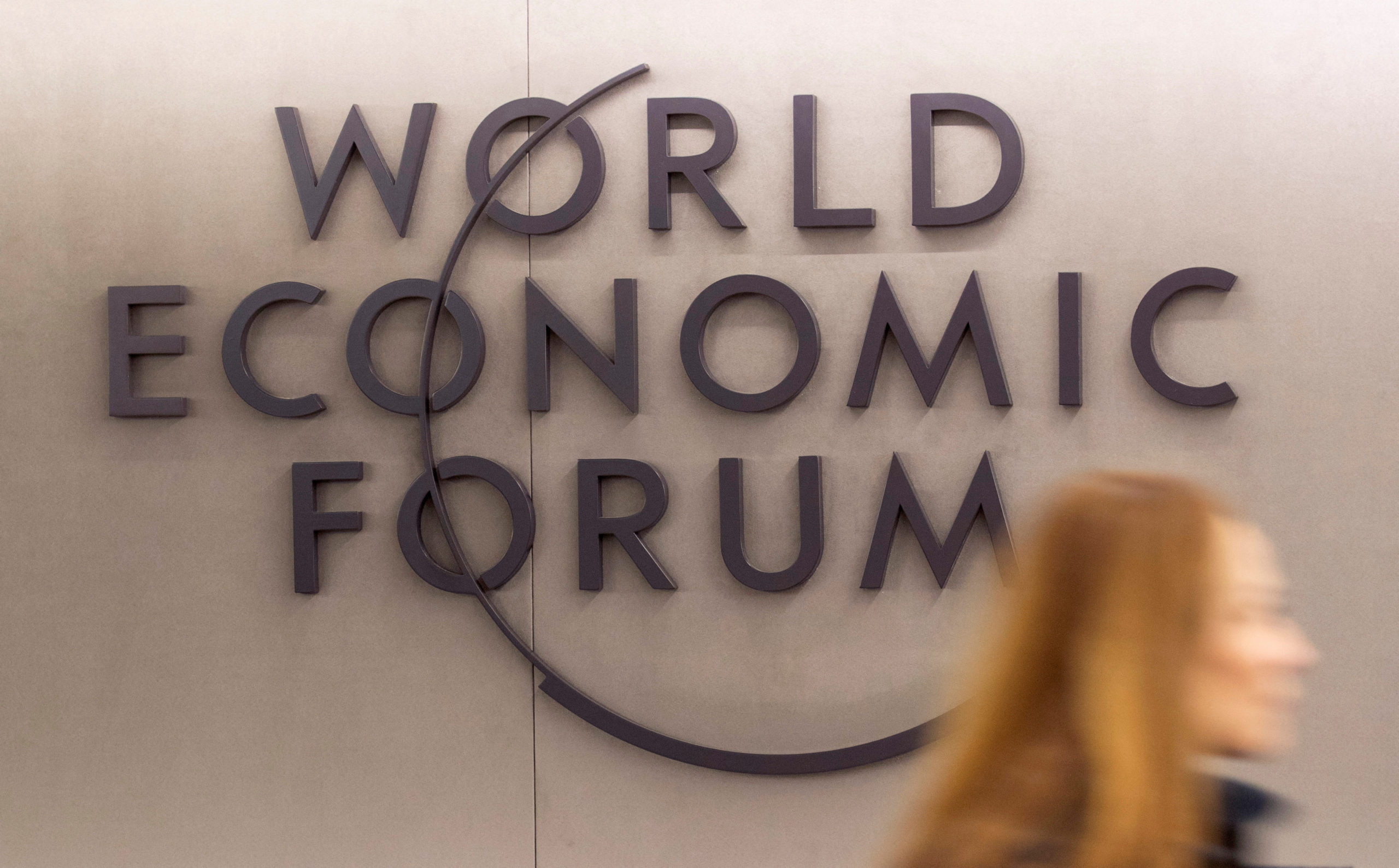
Argentinian President Javier Milei, a far-right libertarian, is struggling to implement his radical austerity agenda as he faces opposition from lawmakers and unions, while inflation and poverty rates remain high in the country. Milei's emergency decree, which aimed to deregulate various sectors and reduce workers' rights, was suspended by a court, and his reform bill faced rejection in the Senate. Milei now plans to rely on executive powers to push through his reforms, although concerns remain about the potential for social unrest if he fails to deliver results.

Japan's recent increase in interest rates and inflation levels suggests a departure from its long-standing economic stagnation, yet underlying factors such as an aging population and high public debt continue to hinder substantial growth.

The soaring rate of food inflation in the US has led more Americans, including those with six-figure incomes, to use "buy now, pay later" apps to purchase groceries, with around 15 million people reported to have used these apps last year.

Goldman Sachs chief economist Jan Hatzius predicts that AI will have a positive impact on the U.S. economy, boosting productivity and long-term GDP growth, although some jobs will be replaced by automation, leading to potential short-term turbulence in the labor market.

Small business optimism fell in February, with inflation remaining their top concern as prices continue to rise, according to a survey by the National Federation of Independent Businesses.

China's economic recovery is progressing at a slow pace, with Chinese consumers increasing spending on sectors like restaurants and travel, which is expected to expand to other areas; investors can gain exposure to China through US multinationals or focus on growth sectors such as domestic consumption, clean technology, and semiconductors. Despite concerns about the real estate sector, the Chinese government is unlikely to allow a financial crisis to occur.
Working-age Japanese women have been steadily joining the labor market in recent years, thanks to government policies and changing social norms, presenting an interesting trend for American policymakers to consider.

The Canadian dollar weakened to a three-month low against the US dollar as lower-than-expected domestic inflation data increases the likelihood of interest rate cuts by the Bank of Canada in the near future.
UK pension funds' lack of investment in domestic equities is contributing to the decline of UK equity markets, which is negatively impacting the country's economy and investment in the future; steps need to be taken to increase the savings rate and incentivize investment in UK businesses.

Siemens AG's stock fell the most in seven months after disappointing demand in China for its digital industries division, as new business in China more than halved in the fiscal first quarter.

President Joe Biden has overseen a strong economic rebound since the COVID-19 pandemic, with high economic growth, low inflation, strong wage growth, and low unemployment rates, but there is a disconnect between the country's economic performance and public sentiment, possibly due to political factors and confusion about the economy.
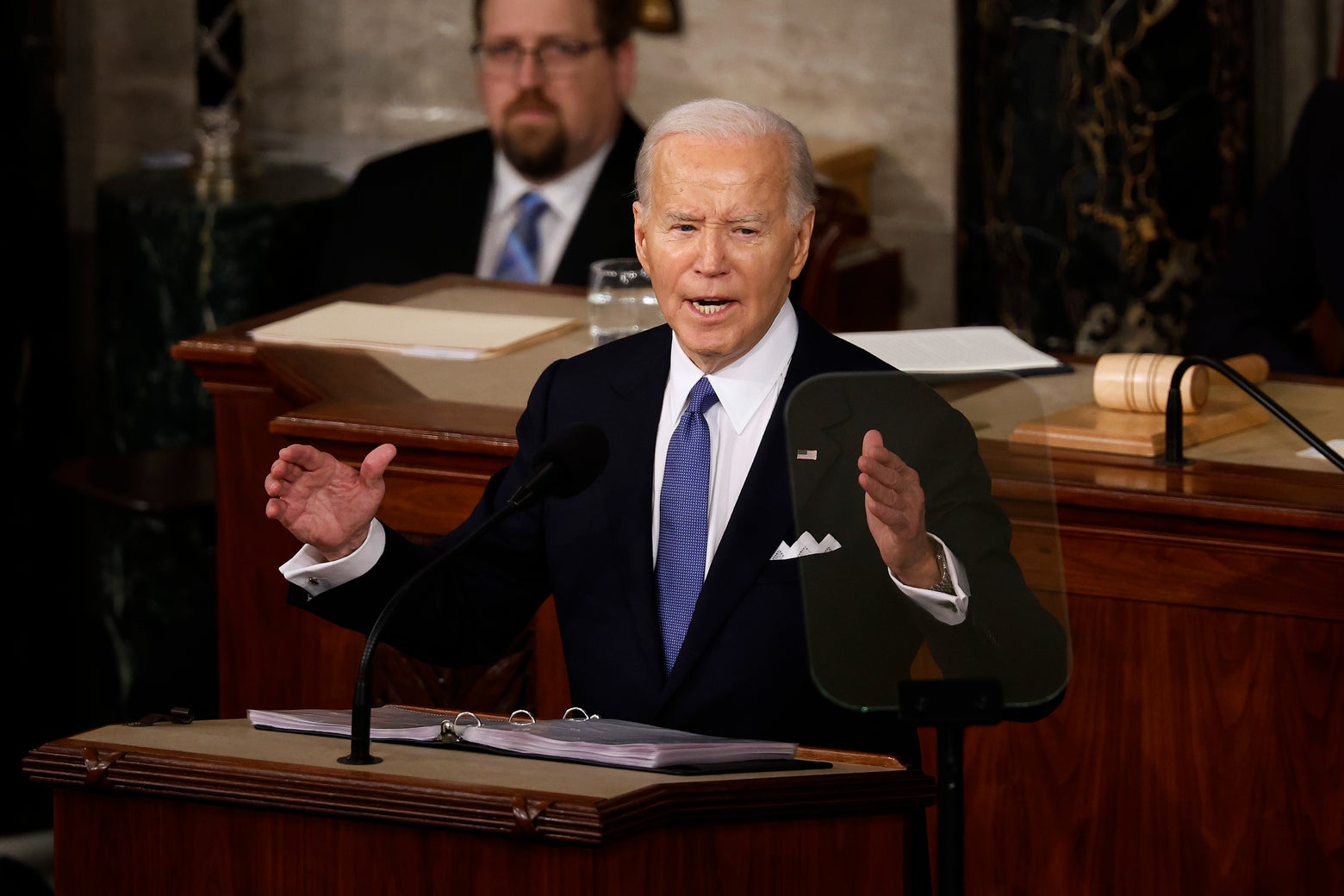
China's annual parliamentary meetings concluded with a focus on boosting the economy through becoming a global leader in technology, targeting 5% GDP growth by 2024, despite challenges such as a weak real estate sector, declining consumer demand, and declining foreign investment. The government emphasized the need for innovation and technology, particularly in the field of AI, but also highlighted the challenges of incentivizing the private sector, developing skilled human capital, and securing energy supply chains.
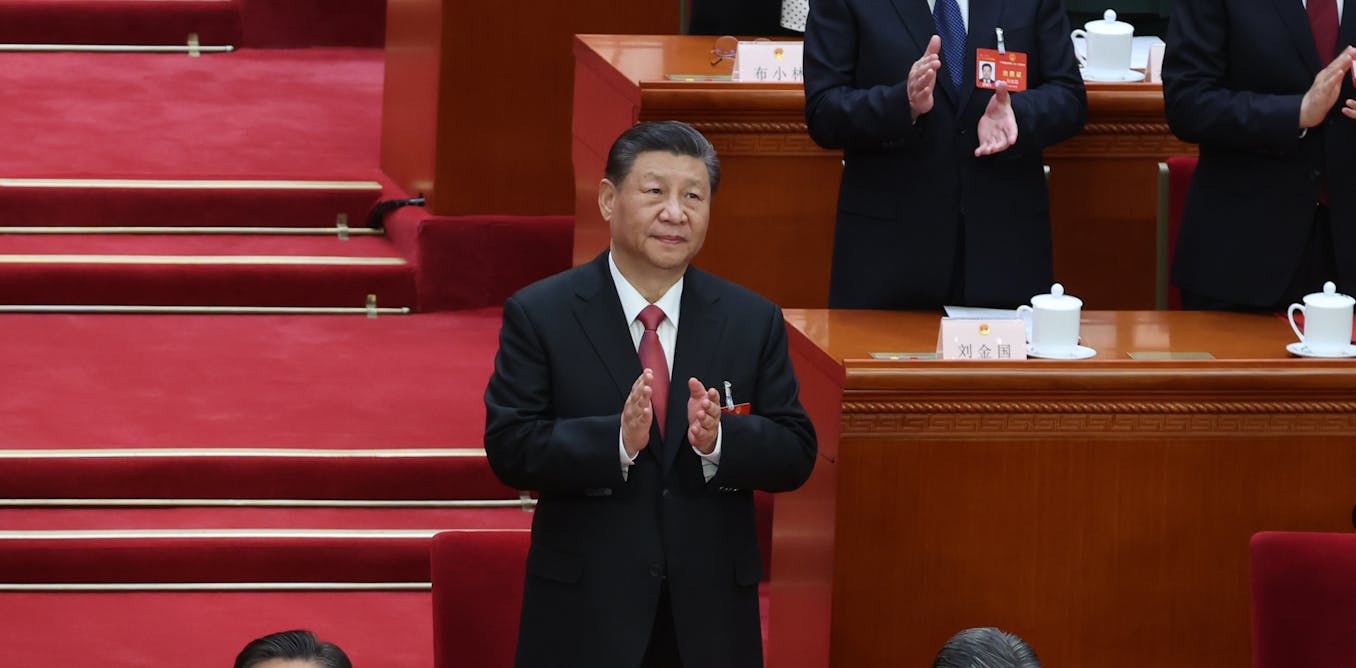
Mexican tariffs on Chinese steel products show a willingness to accommodate US demands, raising concerns for Chinese producers and investors ahead of the US presidential election.

Economist David Rosenberg believes that a recession is four times more likely than an economic expansion in the US, citing signals such as a decline in real retail sales and industrial production, as well as a disparity between unemployment rate and job claims data.
Furniture retailer DFS and DIY group Wickes have reported weaker demand for high-cost household goods due to the ongoing cost of living crisis, resulting in lower sales and profits for both companies.

Credible Operations, Inc., a personal finance marketplace, provides tools and information to help improve finances, including current mortgage rates, factors affecting mortgage rates, and tips on comparing rates and applying for a mortgage.

The Bank of Japan (BOJ) has ended its negative interest rates policy after eight years, marking a historic shift away from its unconventional monetary stimulus as it focuses on a fragile economic recovery and moderate rate hikes. The move makes Japan the last central bank to exit negative rates and signifies a departure from the era of cheap money and unconventional tools to stimulate growth.

The average Wall Street bonus fell slightly to $176,500 last year as the industry took a more cautious approach to compensation, despite an increase in profits.
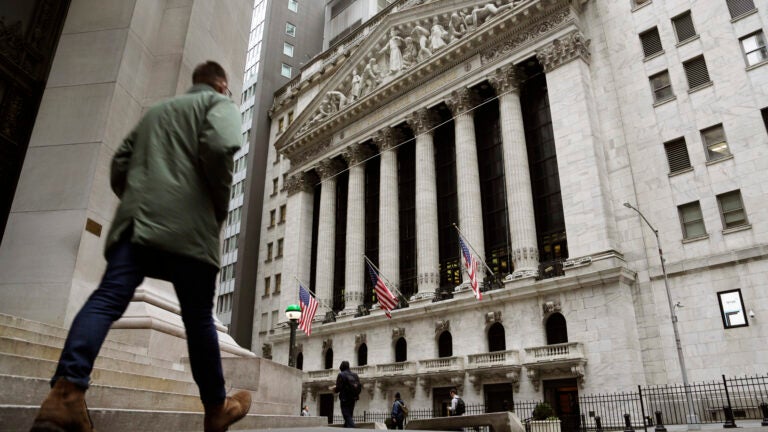
US home construction rebounded strongly in February as builders took advantage of slightly lower mortgage rates and a shortage of existing homes for sale, signaling a recovery in the housing market.

The Federal Reserve is grappling with increasing inflation, raising questions about whether the central bank's goal of achieving normal levels of inflation is within reach. The upcoming Fed meeting will provide insights into their assessment of the economy and their projections for interest rate cuts. Policymakers are considering the potential long-term effects of pandemic-induced changes in consumption habits on inflation trends. The Fed is monitoring inflation in goods, services, and housing, with hopes that the housing market will cool down to help bring overall inflation to normal levels. Analysts speculate that the Fed may delay rate cuts if inflation reports continue to disappoint.

CEOs' optimism about the global economy has increased, with 27% expressing positivity, driven by expectations of central bank policy changes and lower interest rates, according to a survey by Fortune and Deloitte. CEOs' confidence in their own companies' prospects also rose, while concerns about inflation and financial instability diminished. However, worries about regional disputes impacting business and issues of trust and misinformation have increased. The survey also highlighted the increased adoption of generative AI technology among CEOs.

Despite interest rates being at a 23-year high, the US economy remains strong with low unemployment and record high stocks, puzzling economists who expected a recession, which can be partly attributed to low mortgage rates and healthy household finances of Americans.

China is unlikely to escape the middle-income trap due to challenges such as an aging labor force, stagnant manufacturing sector, and local government crises, warns a Chinese demographer, while an economist suggests that China can achieve high-income status and reach half of the US GDP per capita by 2049 through investments in education and productivity improvements. However, the demographer argues that China's physiological and demographic factors will hinder such growth.

Artificial intelligence (AI) will be a productivity enhancer and accelerate economic growth, leading to job displacement in some areas but creation in others, according to top economist Jan Hatzius. However, the International Monetary Fund warns that AI may deepen inequality and governments should invest in safety nets and retraining programs.

Per capita income shifts are occurring in India, with small town opportunities leading to business growth across various lifestyle segments, according to the Reserve Bank of India's bulletin. The demand for premium consumer businesses is expected to remain strong in the medium-term, while per capita spending on durables and discretionary products has been increasing in both rural and urban markets. There has also been a shift in consumption patterns towards non-food items due to rising incomes.

Business insolvencies in Canada increased by over 40% in the fourth quarter of 2023, with the repayment of pandemic loans adding to the financial strain faced by businesses.

The Reserve Bank of India expects the domestic FMCG sector to slow down in the next six months, but predicts robust demand for premium consumer businesses, noting that significant income shifts are occurring in India and that the Indian economy is experiencing a favorable macroeconomic configuration for future growth.

Argentina's self-proclaimed "anarcho-capitalist" president, Javier Milei, has implemented aggressive austerity measures and clashed with various groups, resulting in a tumultuous first 100 days in office.

Recessions are found to increase longevity by reducing pollution, as seen in the Great Recession, where higher unemployment led to cleaner air and a decline in mortality rates, highlighting the trade-offs between economic activity and health.
The Bank of Japan has raised interest rates for the first time in 17 years, putting an end to its negative interest rate policy and marking a shift away from aggressive monetary easing used to combat deflation; the bank also announced the abandonment of its yield curve control policy and the end of purchases of exchange-traded funds and Japanese real estate investment trusts.
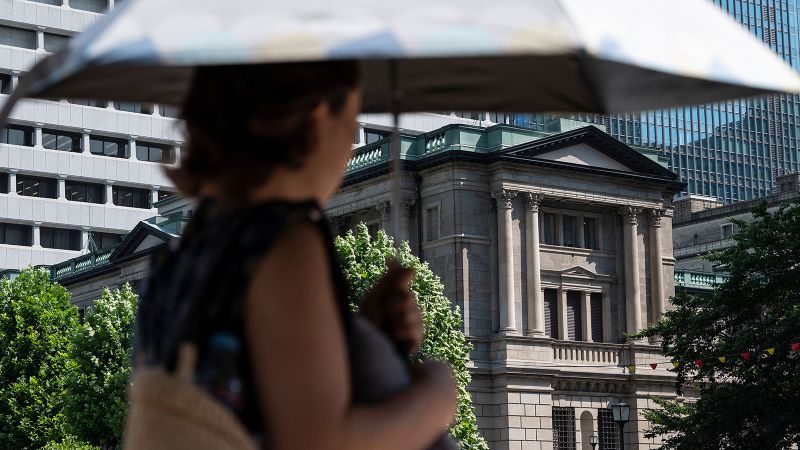
The average Wall Street bonus in 2023 was $176,500, slightly lower than the previous year, despite increased industry profits and a larger workforce, possibly due to a more cautious compensation approach.

Due to dwindling supply caused by climate change, cocoa prices have reached historic highs, leading to an expected spike in prices for chocolate treats this Easter season.

The Federal Reserve faces challenges in lowering inflation levels to normal due to the risk of convincing consumers and businesses that inflation will be higher in the future.

A mistake in an email regarding inflation data has sparked questions about the government's distribution of information, leading traders to closely monitor housing prices.

The managing director of the International Monetary Fund (IMF), Kristalina Georgieva, stated that strong macroeconomic indicators and sound policy and institutions are essential for building a resilient economy, while also highlighting that excessive spending during an election period was a contributing factor to the economic difficulties faced by Ghana.
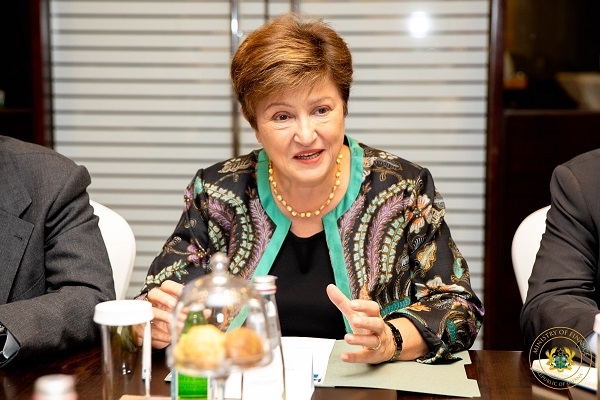
Lebanon's long-awaited government economic recovery plan, crucial for addressing the country's financial losses and securing foreign financing, faces staunch opposition and is not on the agenda for the Council of Ministers meeting, leaving depositors without access to their savings and the banking sector at risk of bankruptcy.

China's rapid military modernization, nuclear arsenal expansion, and efforts to reduce reliance on imported oil while presenting itself as green may be viewed as a misallocation of resources in the future, while examples in the US, such as the CHIPS Act and the Inflation Reduction Act, demonstrate the risks and unintended consequences of misallocated capital in government-funded initiatives for semiconductors, renewable energy, and carbon reduction.

The number of affluent families in China has declined for the second time in 15 years, with a 0.8% drop in the number of families with assets of 6 million yuan or more, as the country faces economic challenges and the impact of the pandemic and geopolitical tensions, according to a report by the Hurun Research Institute.

The International Monetary Fund (IMF) has stated that Ghana's economic challenges are not solely caused by the COVID-19 pandemic, but also by excessive spending during election periods.
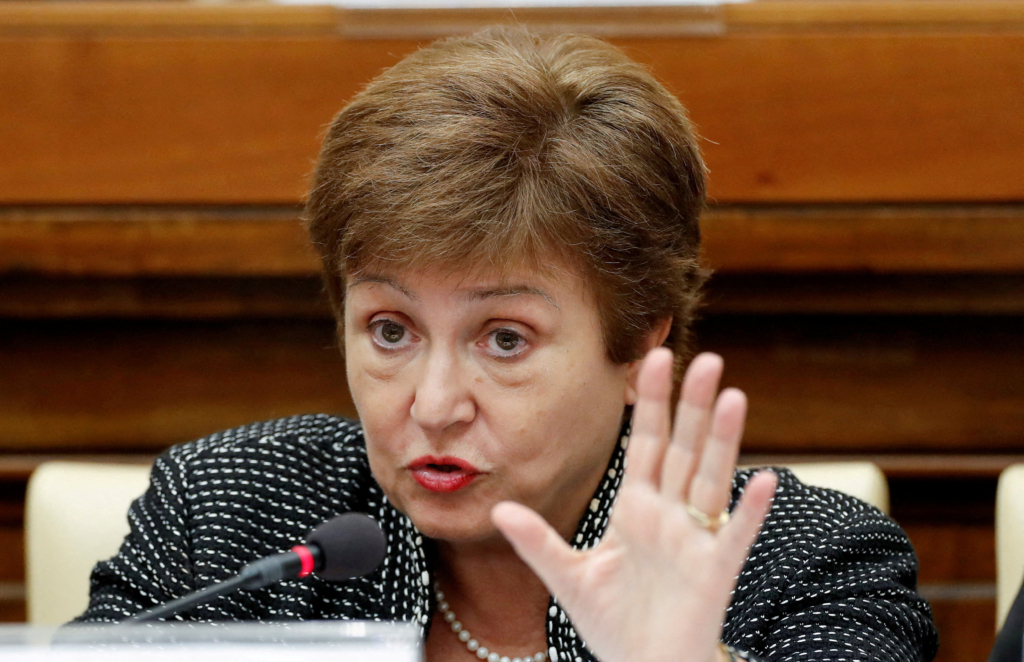
China is expected to keep benchmark lending rates unchanged, according to a Reuters survey, as the central bank aims to stabilize the currency and support the struggling property market.

Japan's central bank raises its interest rate for the first time in 17 years, ending its longstanding policy of negative rates in an effort to boost the economy.
Russia is expanding its economic and trade ties with Cuba, with over 100 Russian companies starting operations in the country and Russian banks considering opening representative offices, in a move to pivot to alternative markets in the face of Western sanctions.
The International Monetary Fund (IMF) and Pakistani authorities have extended talks to finalize the Memorandum of Economic and Financial Policies (MEFP), including contingency measures for data gaps, as part of the $3 billion Standby Arrangement.

Resistance from a group of countries is making it difficult for Von der Leyen to implement her plan of using Russian assets to buy weapons for Ukraine.

India's economy is predicted to grow steadily at 6.5%-7% over the long term, but it is unlikely to achieve the same 8%-10% growth rates as China due to infrastructure and skilled workforce constraints, according to Morgan Stanley's chief Asia economist Chetan Ahya. However, the investment bank remains optimistic about India's economic prospects, comparing the current expansion to the boom experienced in the mid-2000s.

Goldman Sachs chief economist Jan Hatzius predicts that while AI may destroy employment in some sectors, it will also boost productivity and create new jobs in others, ultimately contributing significantly to economic growth over time.

A new paper co-authored by Lawrence Summers suggests that using a pre-1983 method to measure inflation in the US reveals a much higher inflation rate, around 18%, compared to the official 4.1% number, casting a darker picture of the economic impact on Americans.

Nigeria's total imports increased to N35.9tn in 2023, while exports were also N35.9tn, with the majority of exports coming from crude oil; naira depreciation and various challenges hindered the country's non-oil exports and efforts to diversify the economy.

The International Monetary Fund is lending a near-record amount to nearly 100 countries, highlighting its growing role in providing financial support and stability in the post-pandemic world.
